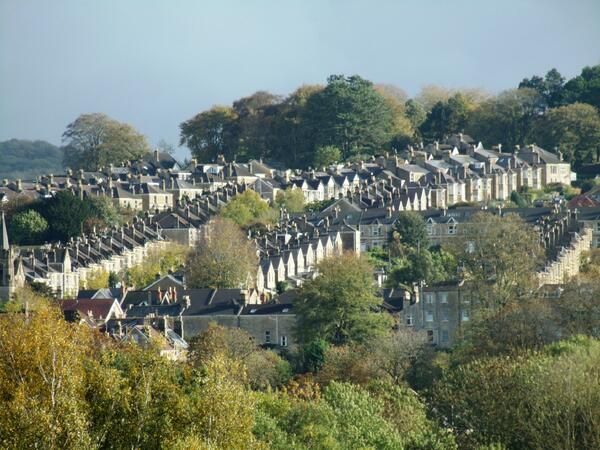Our Chief Executive Caroline Kay will be speaking on behalf of BPT at tonight’s council meeting regarding potential responses to the recently-declared Climate Emergency. Those interested can watch a livestream online, and a recording will be made public following the meeting, both of which are accessible by clicking here. Below is our current statement regarding the Climate Emergency to Bath and North East Somerset Council.
At BPT we welcome the declaration of Climate Emergency. The paper before you indicates primarily how the Council will encourage others: we at BPT would like to persuade the Council to ‘show not tell’ as well.
Since 2011, when BPT, with CSE, produced ‘Warmer Bath’, award-winning guidance for energy efficiency in Bath’s traditional buildings, there have been 8 lost years when changes that should be possible and straightforward, even in listed buildings, could have been achieved by many households, including across all of the Council’s traditional commercial estate. ‘Warmer Bath’ will be updated in the context of the Emergency but most of it still pertains.
We regret the lost opportunity across the MOD sites and Bath Riverside for designed-in solar generation. We consistently suggested this be included. We also think the Council should be braver in using every lever they possess, including differential parking pricing, to discourage fossil-fuel-based personal transport of any sort. Any new car parking should have the potential to have 100% charging points. Cars must be made fit for Bath, not vice versa.
We are concerned that the Council’s commercial property is categorised as Scope 3. It will be a rare tenant who would refuse their landlord the possibility of improving energy efficiency in their buildings and we are pleased that the Council’s paper brings a stronger focus onto the Scope 3 emissions though we would prefer that focus to be more on Council property than procurement.
We are pleased that the Council’s paper has not repeated the unreferenced, unverified assumption of their consultants Anthesis that ‘listed buildings are likely to have a higher carbon footprint’. Good data on listed buildings is thin on the ground, and the EPC is proven to be an inadequate tool for them. Sloppy assumptions of this sort led to streets and streets of readily improvable old family houses being demolished in the 50s and 60s and replaced with thin-walled concrete-based housing blocks – concrete that is one of the most carbon-hungry materials there is. CSE’s report, by contrast, highlights that these ‘new’ buildings can be where you see the greatest fuel poverty and energy inefficiency.
For traditional buildings, we would recommend the ‘whole house’ approach advocated by Warmer Bath, Historic England and CSE. Bath should be leading the way on developing expertise in this field. With our World Heritage status, we have a unique opportunity.
BPT Trustees and Staff met this week to consider every measure that BPT can take both as a property owner and advocate. As a charity, we are actively pursuing grants for physical changes to our own listed buildings and in our advocacy role we have meetings arranged with Councillors and officers in the next weeks. We wish to participate actively in the Emergency, Environment and Place Partnership and we would like to work at pace either with the Council, or a private sector owner, on a demonstration ‘Georgian House of the Future’.
As Extinction Rebellion said when they demonstrated at the Roman Baths – you can’t protect your past if you don’t protect your future. At Bath Preservation Trust we agree.
